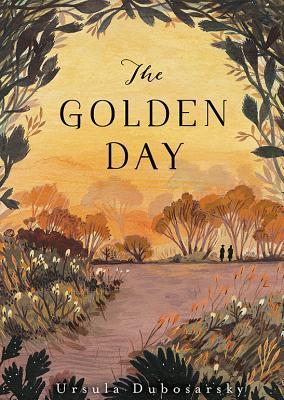At a girls’ school in Sydney, Australia one beautiful afternoon in the late 1960s, a group of girls go with their teacher, Miss Renshaw, to the gardens, supposedly to write poems. While there, Miss Renshaw invites them to talk with the gardener, a conscientious objector named Morgan, who is himself a poet. Morgan leads the girls and Miss Renshaw into a nearby cave, supposedly to explore aboriginal paintings. The girls come out of the cave, but Miss Renshaw never reappears. Forever linked by their teacher’s disappearance, the eleven girls in Miss Renshaw’s class struggle to make sense of her fate, even years later when they finish their time at school.
There is no real way to capture the haunting beauty of this book in a simple synopsis. While the plot is significant, what makes this book remarkable is the beauty of the language and the author’s eerie, otherworldly tone. I was with the girls in every moment of the story. I could envision every moment, from their innocent gathering under the tree with Morgan, to the loss of one of the girls’ hats on the hike to the cave. Later, when they return to school, I felt as though I could hear the footsteps of teachers and administrators climbing the stairs to Miss Renshaw’s classroom. I could see their concerned faces, and feel the guilt the girls felt as they were torn between keeping a secret and helping to possibly save their teacher. The book took over all of my senses, and I felt like I was swimming in it, enjoying wave upon wave of its gorgeous prose and psychologically compelling storyline.
Adult readers might find that Miss Renshaw is similar in some ways to Miss Jean Brodie from the Muriel Spark novella and the film based on it. Indeed, I imagined Maggie Smith in the role of Miss Renshaw almost the entire time I was reading, and though the content of this story is not as mature, Miss Renshaw and Miss Brodie are both equally unsettling figures. I actually think The Golden Day is such a sophisticated novel that adults can enjoy it just as much as kids. Though the characters are roughly the equivalent of fourth graders for most of the story, I think the best audience for the book is actually slightly older. Middle school readers, especially, will be drawn to the creepy mood of the story, and the moral implications of Miss Renshaw’s behavior. I think this would be an interesting book to read aloud, or to discuss in book clubs. When I finished the book myself, I instantly wanted to know other readers’ opinions on it, and I suspect young readers will feel the same way - especially given the story’s unexpected and ambiguous conclusion.
The Golden Day is one of the best books I’ve read in 2013, and it’s likely to stick with me for a long time to come. Though it’s not eligible to win the Newbery because the author is not a U.S. resident, it is just as distinguished as any book that has won Newbery recognition, and I recommend it very highly to readers from grade 5 to adulthood.


No comments:
Post a Comment